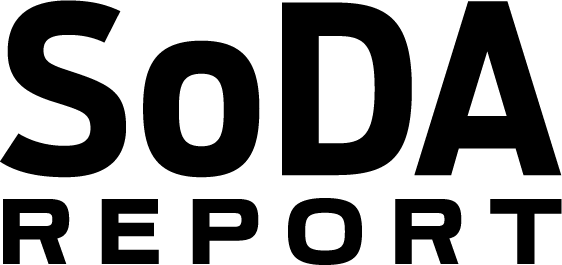Leveraging Technology to Increase Agency Efficiency
by Gabrijela Bosnjak, Productive
Digital agencies in 2022 hold a superior yet tricky position.
Superior because brands need digital communications more than ever. They need to stand out, trailblaze, amuse, educate, and lead consumers across the digital realm—which means they need agency expertise. Tricky, because the same brands have a global pool of options they can choose from, just an email and Zoom call away.
A mature agency knows that leveraging technology is crucial to lead a decentralized team and deliver work in a way that will increase profitability. However, improving overall efficiency in the longer term calls for a deliberate and wholesome approach.
With software built to help with business management and organization arising left and right, the question is not whether to use technology, but which core tool to buy?
What an Embedded Sales Funnel Can Tell Your Agency
In a typical agency today, be it specialized in development and design, branding, advertising or PR, sales has a more strategic role than what was traditionally the case. An agency’s business development team works closely with various departments. It assists HR to plan hiring, operations and project managers with resource planning and client servicing, and sales lets Management in on financial forecasting. But Sales doesn’t do all that by putting dozens of people in CC anymore. At least, very few agencies still function through email updates.
Agencies increasingly use an easily accessible funnel and automated reports for stakeholders to see how leads and potential projects are progressing through stages. What’s the probability of that six-month project kicking off next week? How will that impact profitability, which resources will we engage? Do we still need to hire contractors?
Agencies can have those questions answered through a sales funnel that’s integrated with reports, project management, and resource planning. Simultaneously, biz dev may be negotiating with other hot leads that will need immediate attention soon.
Real-time Metrics as Your Agency’s Base for Data-driven Decisions
Here’s another question. Is it possible for CEOs, CFOs, operations or account managers to know the true state of their agency’s finances at all times, without waiting for reports from the finance department? It is.
Spending time on designing presentations, building reports, backtracking into last quarter’s P&L or asking the accounting team for the latest figures is becoming a practice of the past. Today, you can give different team members access to financial data and help positively influence the course of your agency’s decisions.
For real-time metrics to be as accurate as possible, what’s key is getting all teammates to regularly track time. Besides tracked time on services that each have their own rates tied to them and are assigned to projects, keeping track of all costs in the same agency management tool (including overhead, contractors, out-of-pocket expenses, etc.) is a must.
This way, agencies have a single source of truth for tracked time and utilization, budgeting and profit margins—and decision-making becomes easier and is backed up by numbers.
To Use a Project Management App or an Agency-Focused Tool?
Here’s another doubt that arises in the process of (re)evaluating an agency’s toolstack and how to leverage technology: agencies rightfully ask themselves whether they can get by with a project management app instead of an agency-focused software.
The reasoning behind adopting a tool for project management is clear. Agencies mainly deliver project work through timelines and tasks. Still, are those projects and tasks connected to reporting and billing via tracked time, resource scheduling and budget spending?
While certain project management apps offer reporting capabilities, they target the widest audience possible—meaning that an agency’s key metrics or specific reports won’t be accessible in the same system. It’s not likely that project managers can gain insight into billable utilization or amounts left for invoicing per client in a tool that is more focused on achieving milestones and checking off boxes.
Other than that, projects tend to run smoother when communications are kept transparent with clients for the duration of a project. This means that being able to invite them aboard to projects and tasks to leave feedback or check their budget spending can save time and tighten relations in the short and long run.
The success of agency projects will rely on sales metrics, forecasted revenue, resource allocation and cash flow, all of which are rarely found in just a project management app.
Integrating With Specialized Tools To Automated Streamline Work
Perhaps last, but not least important: can an agency use only one tool to maximize its efficiency, or will it need to integrate with other software to get all the data and productivity it needs? By answering which features are crucial, and depending on the size and type of an agency, a few simple integrations can streamline work.
An example of saving time on duplicating data is connecting your agency management tool and accounting software. Because of various local regulations, most business management tools integrate with tools such as QuickBooks Online, Exact and Xero—to name a few. This drastically decreases the chance of human error when copying invoicing amounts from one software to the next. Having this type of integration also helps close the circle back to sales, as streamlining billing will increase cash flow and further investments.
A Single Source of Truth To Increase Your Agency’s Efficiency
Running an agency in one consolidated workspace—from which it will send out proposals, monitor KPIs, open and close tasks, balance resource planning, and invoice each delivered project—is what leaders today are looking for as their North Star.
Whether you’re an account manager, the head of operations, or the managing director, the future of agencies calls for a single source of truth.
Gabrijela Bosnjak, Productive


